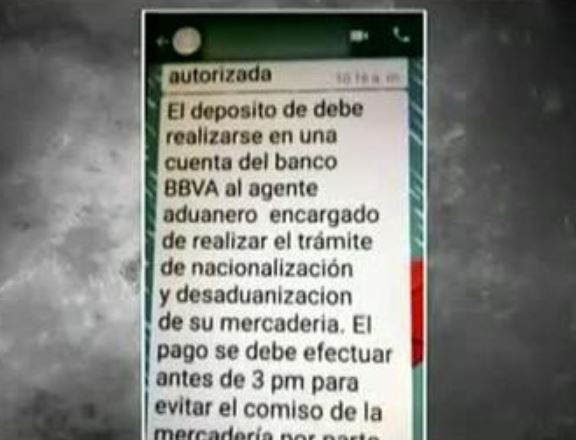Cybersecurity specialists reported the detection of a new form of scam in which criminals choose a potential victim, review their Facebook accounts to identify a family member, and try to contact the victim via WhatsApp to notify them that they will receive a package from abroad.
In case of successfully contacting the victim, the criminals mention that the package is already ready to leave customs, although it is required to cover the payment of a tax. Threat actors even send fake customs documents to make the scam seem more convincing; This scam has been detected in multiple countries in South America and has been linked to groups of Peruvian fraudsters.

DHL ruled on the incident, mentioning that hackers could misuse the company name, so it asks its users to remain alert to possible fraud.

Hugo Moreno, IT Director of DHL Express in Latin America, reported that multiple users have been notified about the fake messages and emails that hackers are using, although these messages contain clear indications that this is a scam, such as spelling errors or flaws in the design of DHL logos.
In a security alert, Moreno mentions: “Criminals check the social media of their victims for a family member or friend based abroad. Criminals send messages to the victim informing them of a fake package from some Latin American country, with the aim of tricking victims into making bank transfers.”
It should be mentioned that DHL does not usually contact users through third parties or request payment of a tax to release a package: “If you receive a call purportedly from a DHL worker requesting money from you, you can bet it’s a scam,” the expert adds.
We are in the middle of a pandemic and cybercriminals have been exploiting this issue to try to make illegal profits, deploying multiple fraudulent campaigns promising economic stimulus in exchange for a registration on a website, needless to say that this is also a fraud that only seeks to collect information massively.
He is a cyber security and malware researcher. He studied Computer Science and started working as a cyber security analyst in 2006. He is actively working as an cyber security investigator. He also worked for different security companies. His everyday job includes researching about new cyber security incidents. Also he has deep level of knowledge in enterprise security implementation.
